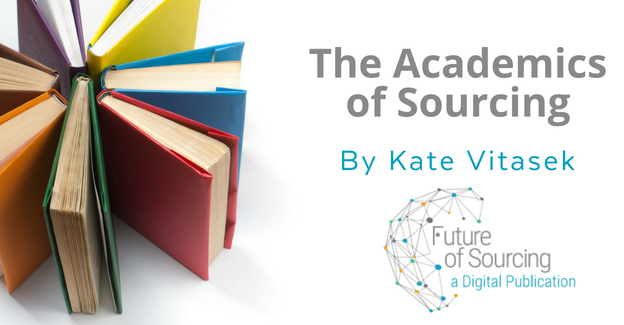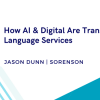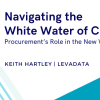Nobel laureate Richard Thaler understands the “human” side of economics. He’s a founding member of behavioral economics and most recently won the 2017 Nobel Prize in Economics Sciences.
The Nobel committee credited Thaler -- Professor of Behavioral Science and Economics at the University of Chicago Booth School of Business -- with taking the behavioral field from the fringe to the academic mainstream. The Nobel committee said that by “exploring the consequences of limited rationality, social preferences, and lack of self-control, he has shown how these human traits systematically affect individual decisions as well as market outcomes.” To many, Thaler is considered the father of behavioral economics.
Thaler has said the basic premise of his approach to economics is that, “In order to do good economics, you have to keep in mind that people are human.” In a 2015 New York Times article, “Unless You Are Spock, Irrelevant Things Matter in Economic Behavior,” Thaler wrote, “Supposedly irrelevant factors, or SIFs, matter a lot, and if we economists recognize their importance, we can do our jobs better. Behavioral economics is, to a large extent, standard economics that has been modified to incorporate SIFs.”
That’s a wonderful insight, but the trick is to sift through the factors that are relevant, possibly relevant, irrelevant and possibly irrelevant, while making the numbers make sense.
For those not familiar with Thaler and his work, his book Misbehaving: The Making of Behavioral Economics, is a must read. In it he describes how behavioral economists challenged traditional thinking over the last forty years. His best-selling book Nudge (2008 - with Cass R. Sunstein) is also a great read that explores how behavioral economics can be used to tackle many of society’s major problems.
Simply put, Thaler is instrumental in making economics more human.
David Frydlinger, a Swedish lawyer and partner in the Lindahl law firm, is one of Thaler’s many fans. Frydlinger, an expert in relational contracts, says, “Thaler is of fundamental importance for those who wish to succeed in writing good contracts in a complex economy.”
“Humanizing” economics and contracts is a significant and much-needed development that the legal and contracting community should carefully follow, and why Thaler’s work is so significant.
Read more: Avery W. Katz: Dealing with the Incomplete Contract
I agree with Frydlinger’s analysis about Thaler that we live in two worlds—the world of traditional economics, where there are only rational and smart but egotistical ‘Econs,’ and the real world of ‘Humans’ which are only rational to a certain extent, have a strong sense of fairness and a strong tendency to think short-term instead of long term.
So, how is this relevant to contracts? To answer this question, Frydlinger suggests that we must determine whether we think of ourselves as Econs or Humans, both those who write contracts as well as those on ‘the other side.’
Econs will lie to get what they want and will take every chance to get a contract that gives them most of the power and completely regulates all the bad things that can happen. “If I think that I am an Econ, I will think that I in fact can write a watertight contract since I have unbounded rationality and can foresee everything,” says Frydlinger.
But the problem is that everyone is Human even if some think of themselves as utterly rational Econs. Frydlinger observes that Humans have a strong sense of fairness and often punish those who treat them unfairly even if it is against their own best economic interest. So, treating Humans as if they are Econs can lead to problems if they are sent a contract that is power-based and shifts most of the risks to them.
Says Frydlinger, “By viewing ourselves and others as Econs instead of Humans when writing and negotiating contracts, we will generate many of the risks we think we mitigate when writing the contract.”
“There can be no doubt that this explains many of the reports of value leakage and other problems in many transactional contracts,” Frydlinger notes.
Bottom line according to Frydlinger—and I concur: it can be very costly to ignore Thaler's Nobel prize and write contracts as if we and the others are Econs instead of Humans.
There is a growing amount of research showing how and when relational contracts (Human) out-perform conventional transactional contracts (Econ) in terms of cost advantages, time, quality and innovation. Researchers at the University of Tennessee and organizations such as the International Association for Contract and Commercial Management and Lindahl are behind this movement to help individuals and organizations understand and make the shift to using the modern form of relational contracts when appropriate.
Read more about relational contracting in “Unpacking Relational Contracts,” and the troublesome fact that evolution has made us ill-equipped to make good plans and at the same time well-equipped to believe we are good planners.
Simply put, we are all human.






